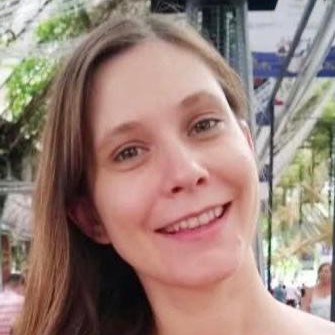|
| Telling the Truth: Behavioral Procedures for Increasing the Accuracy of Reporting Past Events |
| Sunday, May 26, 2024 |
| 5:00 PM–5:50 PM |
| Marriott Downtown, Level 5, Grand Ballroom Salon H |
| Area: VBC; Domain: Applied Research |
| Chair: Rocio Rosales (University of Massachusetts Lowell) |
| CE Instructor: Mariele Cortez, Ph.D. |
| Presenting Author: MARIELE CORTEZ (Universidade Federal de Sao Carlos) |
| Abstract: The controlling relation between nonverbal environment and verbal response is the central feature of the tact. However, stimulus control may be distorted by certain special consequences that are mediated by the listener under particular circumstances. In a major case of stimulus control distortion, the speaker emits a response under circumstances that normally control an incompatible response, what is called a lie. Inaccurate responding about past events could have detrimental effects on social relationships and also affect children’s safety. Caregivers expect their children to report their past behavior honestly when asked about their routine at school, how they got hurt, and so on. Honest verbal reports are also important, for example, in clinical settings and court proceeding, which may involve children’s eyewitness testimony. The positive relation between past and present behavior, whether verbal or not, has been labeled correspondence. We refer to do-say correspondence when individuals say or accurately report what they have done. Research on do-say correspondence has investigated the role of specific conditions under which reports about past may be accurate (honest) or inaccurate (dishonest). I will describe how basic experimental research on do-say correspondence has identified environmental variables that lead to dishonest reports. Additionally, I will present some behavioral procedures for increasing the accuracy of reporting past events in children, including those with Autism Spectrum Disorder (ASD). I will also discuss the role of teaching problem-solving strategies on accurately reporting past events. This presentation will conclude with a call for researchers to systematically investigate the variables and the procedures that may lead to reliable reports of past events. |
| Instruction Level: Basic |
| Target Audience: Behavior analysts interested in the experimental analysis of verbal behavior and, more specifically, in tacts of past events. |
| Learning Objectives: At the conclusion of the presentation, participants will be able to: (1) Functionally analyze honest and dishonest reports about past events; (2) List the effects of different environmental variables on children’s reports accuracy about past events; (3) Describe procedures for increasing the accuracy of reporting past events; (4) Discuss the importance of applying the methods and strategies of basic research when planning interventions for teaching tacts of past events. |
| |
| MARIELE CORTEZ (Universidade Federal de Sao Carlos) |
 Dr. Mariele Cortez is an Assistant Professor of Psychology at Federal University of São Carlos (Brazil), where she teaches courses and supervises master and doctoral students in Psychology. She is also a researcher member of the National Institute of Science and Technology on Behavior, Cognition and Teaching in Brazil that is a network that integrates basic, translational and applied research in a multi-institutional program. She is the current Editor-in-Chief of the Brazilian Journal of Behavior Analysis (BJBA) and she has served as associate editor of BJBA and Perspectives in Behavior Analysis (Brazil). She has reviewed manuscripts for various Brazilian and international scientific journals like JABA and EJOBA. Dr. Cortez’s research focuses on the study of verbal behavior with special interest in evaluating the efficacy of a variety of procedures to teach language for children with or without autism and investigating environmental variables that affect the accuracy of reporting past events, using single-subject designs. Dr. Mariele Cortez is an Assistant Professor of Psychology at Federal University of São Carlos (Brazil), where she teaches courses and supervises master and doctoral students in Psychology. She is also a researcher member of the National Institute of Science and Technology on Behavior, Cognition and Teaching in Brazil that is a network that integrates basic, translational and applied research in a multi-institutional program. She is the current Editor-in-Chief of the Brazilian Journal of Behavior Analysis (BJBA) and she has served as associate editor of BJBA and Perspectives in Behavior Analysis (Brazil). She has reviewed manuscripts for various Brazilian and international scientific journals like JABA and EJOBA. Dr. Cortez’s research focuses on the study of verbal behavior with special interest in evaluating the efficacy of a variety of procedures to teach language for children with or without autism and investigating environmental variables that affect the accuracy of reporting past events, using single-subject designs. |
|
| |